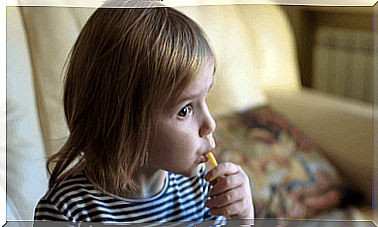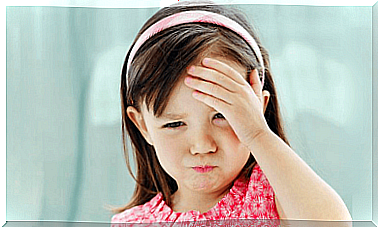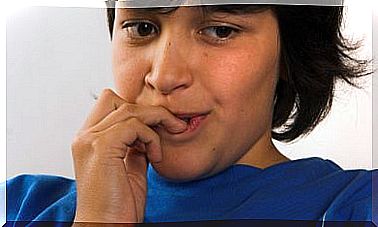Children With Self-regulation Problems: What To Do?

Have you noticed that sometimes your child acts impulsively in an emotional situation? Is it difficult for you to calm down under certain circumstances? This can happen to children with self-regulation problems. Here we are going to see what we can do when a child has this type of problem.
Many situations require that we have the ability to self-regulate. Children need to have that self-regulation skill in their day to day life.
It happens that children with ADHD (attention deficit hyperactivity disorder) and those with sensory processing problems lack this ability, so they do not know how to self-regulate in emotionally charged situations.
Children with self-regulation problems: what is self-regulation?
We can confuse between self-control and self-regulation, but they are different things, although they are related.

- Self-control. It is a social skill that helps children control their behavior, impulses and emotions.
- Self-regulation. It is also a skill, but it tries to manage the emotions, behaviors and movements of the body when we are faced with a complicated or difficult situation, and this makes us attentive and focused on it.
Self-regulation helps children know how to calm down if they are upset in order to avoid discharges of frustration. Therefore, it is normal for a 4-year-old to have a tantrum, because he has not yet learned to self-regulate, but if a 12-year-old does it, it means that there is a self-regulation problem.
How does self-regulation work?
To understand self-regulation, we can help ourselves with a “thermostat”. What does a thermostat do? This mechanism is prepared to make adjustments to the temperature of a stove; when the room reaches a certain temperature, it stops, and when it drops below that temperature, it turns on again. For that, you have to know what the set point is to, well, stop or continue heating.
Self-regulation is a similar process ; children also have a “set point” that they reach when they have the ability to master their emotions and behaviors appropriately.
But, to keep that control, they have to know what their “set point” is to, in a given situation, assess how they are feeling and react so that they do not exceed that point. This process has a lot to do with how you process information and emotions, and what to do with them.
Self-regulation and ADHD
It is difficult for a child with ADHD to control their emotions, which is why they often overreact. It must also be remembered that children with this problem also do not have adequate impulse control and can do inappropriate things about the situation they face.
It is because of all this that children overreact, because they are not able to stop, think about the situation they are experiencing and seek solutions.
Self-regulation and sensory processing difficulties
Children with sensory processing difficulties have problems using the information captured by the senses: touch, sight, hearing, smell and taste, and others that we know less like, interoception, proprioception and vestibular.
The source of the problem is the nervous system, which has difficulty regulating itself. For this reason, if the child is immersed in a situation in which there is a sensory increase, he is not capable of self-regulation, and leaves his emotions and behaviors uncontrolled.
How can we help children with self-regulation problems?
We can help children if they have self-regulation problems, but how? The first thing to do is to know when the information you perceive is a problem, either through your senses or through your thoughts.

What steps does self-regulation require?
- Self-awareness. Whether the self-regulation problem comes from a child with ADHD or one with sensory processing difficulties, you have to make him see which situations can generate intense emotional stress. If we anticipate an event in which we believe that the child is going to have a bad time, it is convenient that we notify them in advance; this will help you to be prepared.
- Impulse control. A child with ADHD, even though he knows that there are solutions to certain situations, cannot avoid the urge to become angry or frustrated. There, parents play an important role to help him manage his emotions and reactions more appropriately, to teach him to develop skills to overcome it.
- Set goals. We must work to set realistic and small goals, so that little by little, the child is able to set bigger goals.
Help children with self-regulation problems
As we have seen, there are children with self-regulation problems and, therefore, it is important that we know how our children’s development is with respect to their age. In addition to everything we have said to help children with this problem, parents can also talk with the little ones to explain what their “set point” is, that is, where they are doing well.
But you always have to show them ways to handle frustration and anger. All children with this problem can use a self-regulation activity sheet.









